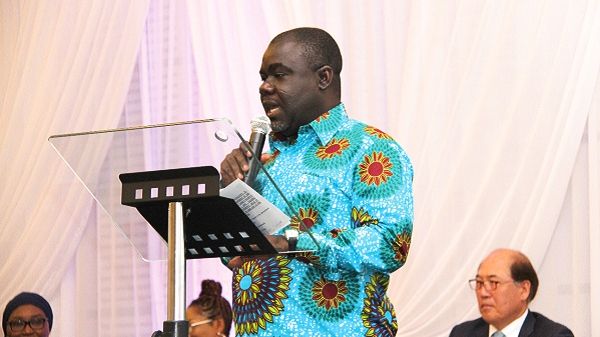The Vice-President, Dr Mahamudu Bawumia, has called on African countries to put in place mechanisms to make waste management an integral part of the development of coastal areas to save marine life from the increasing and devastating threat of pollution.
He said the key challenge facing the maritime industry was pollution, as it was estimated that about eight million tonnes of plastic was dumped into the water annually, adding that if the rate was not stemmed, there would be more plastics in the sea than aquatic life by 2050.
The Vice-President made the call in a speech read on his behalf by the Minister of Transport, Mr Kweku Ofori Asiamah, at the opening of the Sixth Women’s International Shipping and Trading Association (WISTA) Africa Region Conference in Accra yesterday.
The conference, on the theme: “The role of women in harnessing the potential of Africa’s blue economy”, attracted participants from across Africa.
Dr Bawumia said national, regional and continental strategies must take into consideration the environmental dimensions of the blue economy, so that together they could preserve the ecosystem.
He stated that Africa had an opportunity to build a more resilient economy by addressing pressing issues of maritime safety, security, pollution and ocean governance in general and that those could be achieved through collaborative efforts, information sharing and the building of cooperative ventures to have control over ownership of their marine resources.
Women
On women’s role in harnessing the potential of the continent’s blue economy, Dr Bawumia said the need to advance the role of women in maritime activities in recent years had generated a lot of interest because women formed a significant proportion of the population of the continent and that their role in any development effort could not be ignored.
He said it was estimated that only two per cent of the maritime workforce were women, a situation he described as unacceptable and noted that it was high time such statistics were changed through enhancement of the opportunities for women’s participation in the sector.
He said for years seafaring remained the preserve of men, which created significant mindset barriers to the participation of women, adding that there was no excuse to continuously push women into the minority role in the sector.
Dr Bawumia said for its part, the government had been making deliberate efforts to position women in high offices in the sector to correct the decades of domination by men and that for the first time in the history of Ghana the Director of Ports, the Director General and the Board Chairperson of the Ghana Shippers Council were all women.
He urged the conference to consider the important role it could play in the full implementation of the African Charter on Maritime Security, Safety and Development, pointing out that the charter was aimed at fostering cooperation to secure Africa’s maritime space for the common good of the people of the continent.
Business
In the area of business, the Vice-President said the government had put in place measures to facilitate the ease of doing business, especially in the sector, and named them to include the single window system under the WTO trade facilitation agreement which Ghana had ratified, reducing human interference and turnaround time.
He said the new terminal at the Tema Port, which was 50 per cent automated, would be the biggest and most efficient within West Africa.
WISTA
The President of WISTA Ghana, Mrs Jemilat Jawulaa, in her remarks, said creating a community of experienced women in maritime occupation needed to take place at several levels and in various sectors of the industry, adding, however that that should not occur at the expense of seafaring experience, maritime education and training.
She called for changes in infrastructure that would ensure women’s physical security on board ships, such as changing and sleeping facilities, separate toilets and access to personal hygienic products.
IMO
The Secretary General of the International Maritime Organisation (IMO), Mr Kitack Lim, who also addressed the conference, said since the inclusion of women in the activities of the IMO, it had benefited from their rich and experienced contributions, insights and knowledge that had enriched its work.
He said the IMO was working at ensuring the safety of the oceans and a reduction in environmental pollution, adding that it was also looking at the introduction of new technology which would reduce the use of human strength in the industry.

